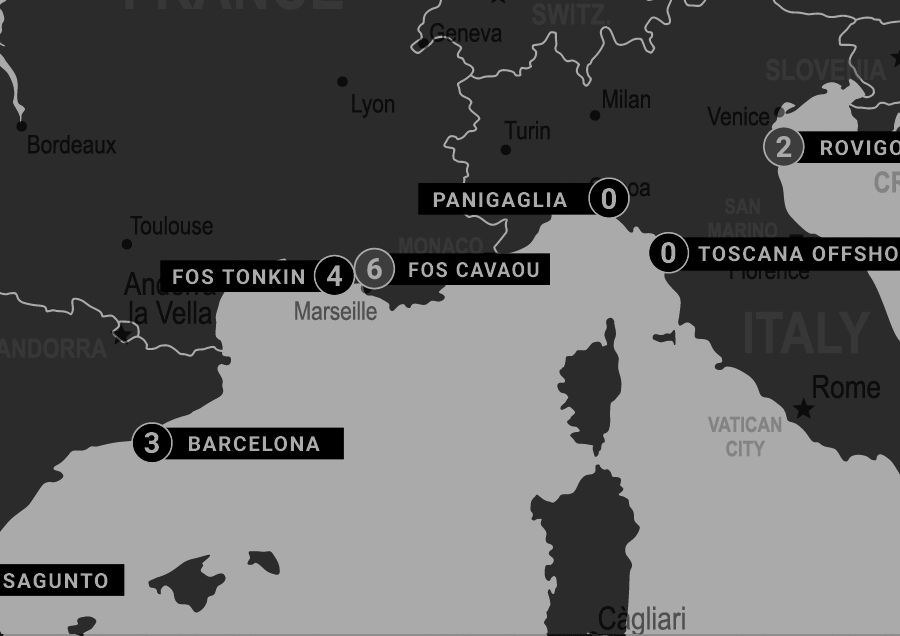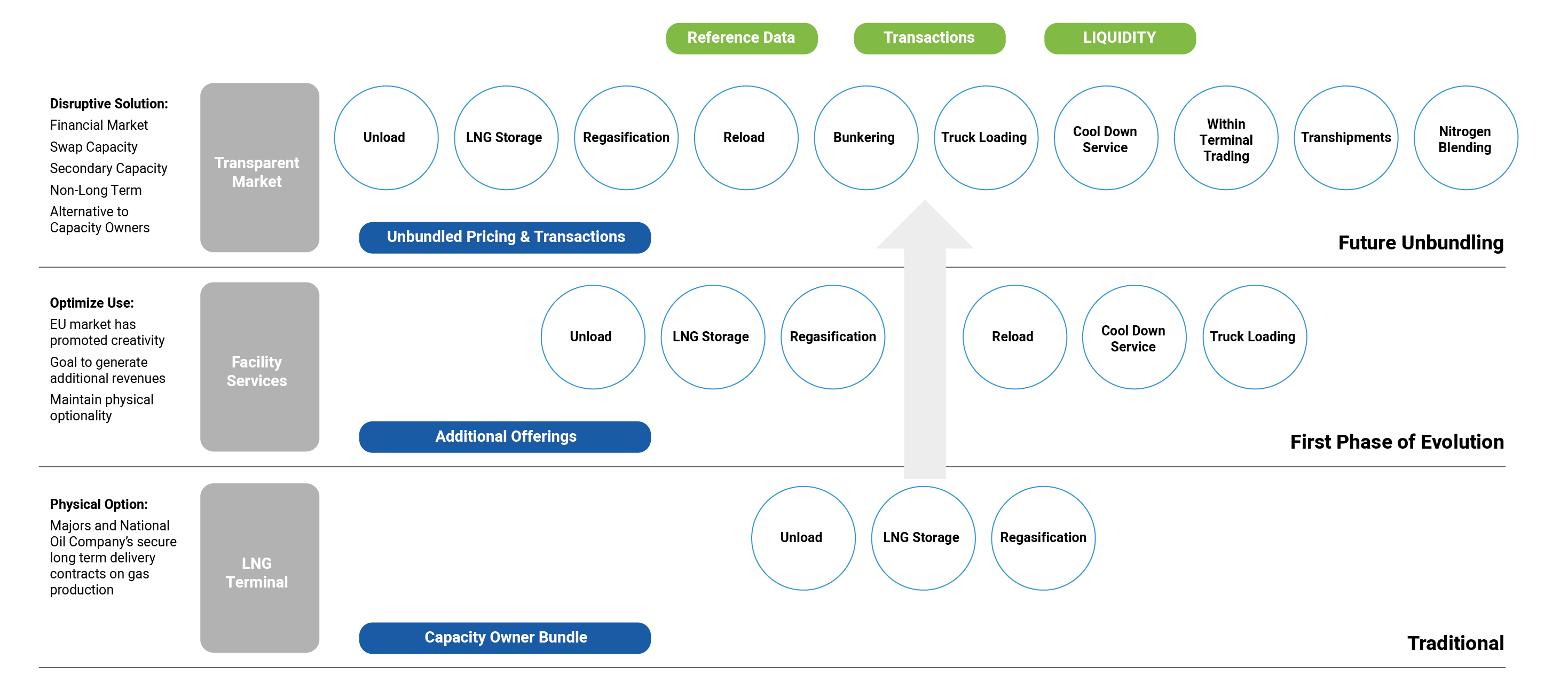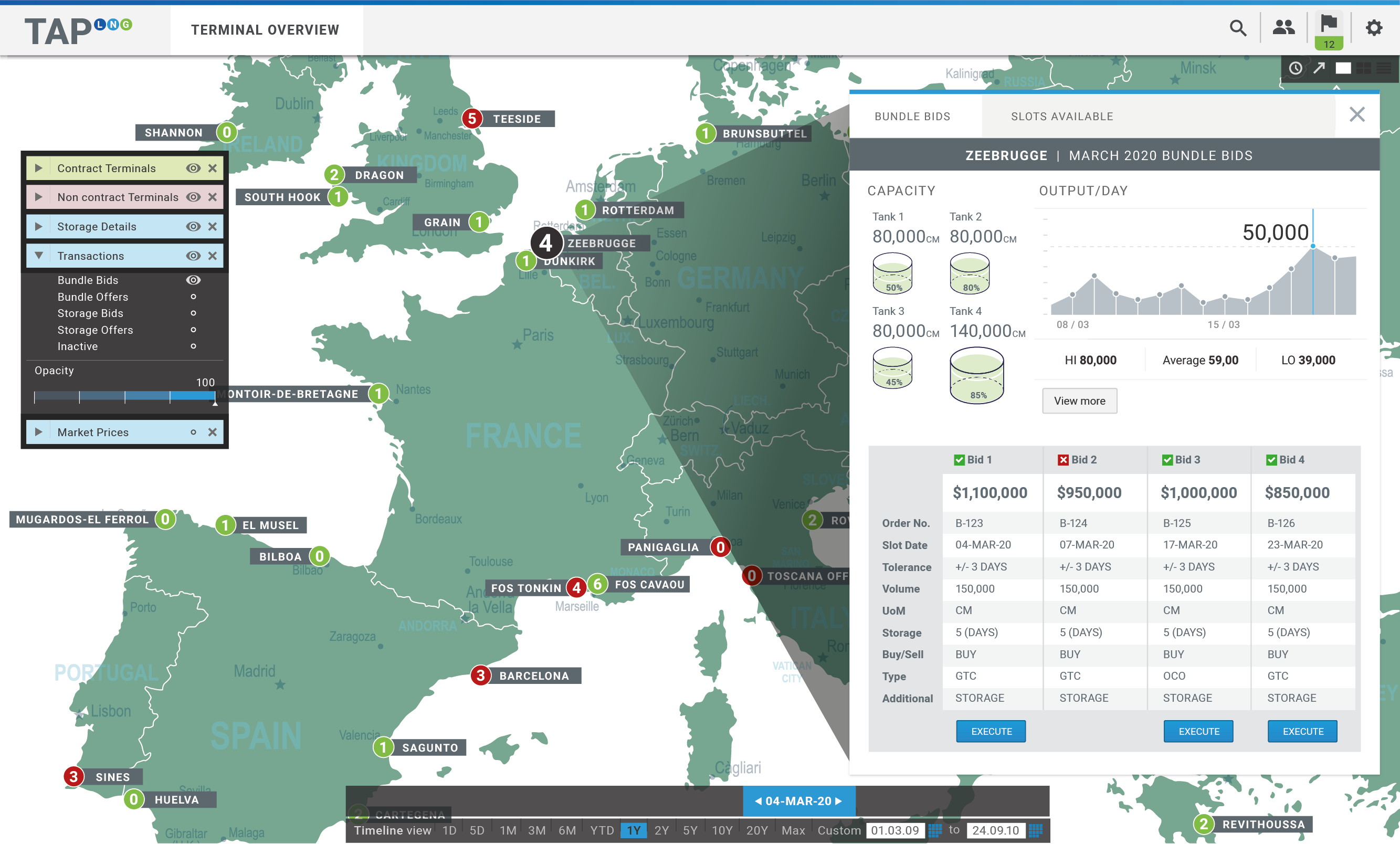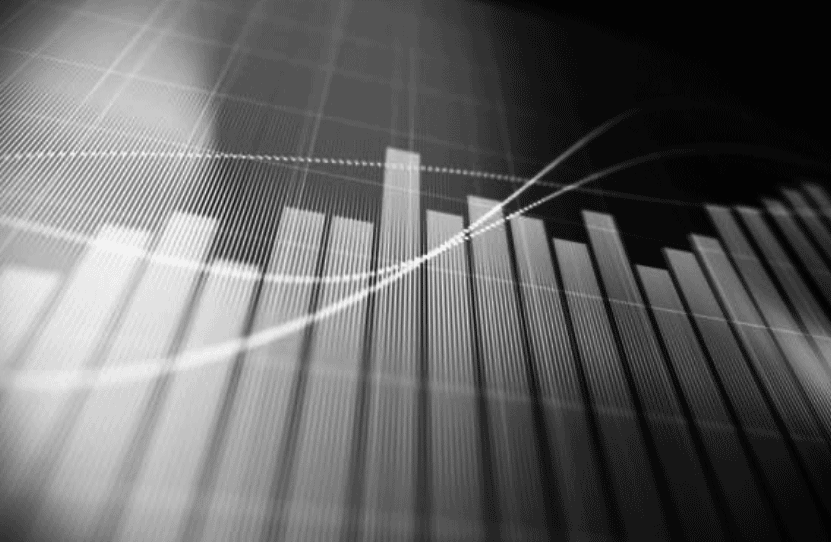
Terminal Communications
There are currently 25 regasification terminals in Europe alone and others are planned to be built over the next few years. Most terminals operate via a phone, a dedicated website, an application and an email system to conduct trades bilaterally.

Regulatory Landscape
Some terminals are regulated and have tariffs assigned to them and others are exempt, but have Third Party Access (TPA) regimes established by regulators to prevent capacity hoarding (Use It Or Lose It/ UIOLI).

Industry Inefficiency
The lack of a centralized LNG terminal focused solution facilitating transaction processing, and when combined with poor transparency and unclear trading/pricing information in the LNG markets, are not allowing the industry to optimize operations, nor helping foster a secondary market - allowing entry to smaller companies (SME’s).
The Market Need

The Solution
A dedicated / centralized/ aggregated LNG platform solution could result in higher profitability for LNG Terminal and Capacity Holders and would allow trading operations to benefit from an acceleration up the maturity curve by improving business optimization.
Define Trade Definitions
Define Least Common Denominator Trade Details to Accommodate all Regasification Terminal Information
Deal Standardization
Standardize Deal Details into Trade input Screen
Terminal Comparison
Translate Deal into typical Terminal Terminology and T&C’s to Secure Capacity, pursue Standardization to do Apple to Apple Terminal Comparison

Post Price
Offer Bilaterally to Specific Approved Counterparties and to Broader Open Market for execution to Approved Counterparties
Compliance
Post Trade Details consistent with Industry Approved Information that Addresses Confidentiality Concerns of Participants and Current/ Expected Regulations
Aggregated Views
Improved Trading workflows by unifying all data into one place through a series of easy to use interfaces.

Increased Revenues
Enabling greater revenues and financial returns for LNG regasification terminals.
Terminals offer additional services such as trucking, reloading, storage, transhipments, etc, to increase revenues, provide optionality and profit above their traditional business plan. There potentially exists further opportunity to extract more value from these services and to increase volume. All this while supporting country requirements to improve security of supply

Transforming Business
Developing a new electronic platform to transform business processes and business interfaces – Opportunities exist to develop an electronic platform to:
Centralise up-to-the-minute data on each participating LNG regasification terminal
Allow terminals to market and trade their services online using a common platform across all terminals
Invite (new & existing) trading counterparties to tender for regasification terminal services

Transparency & Standardisation
Creating greater transparency in the LNG market and improving levels of standardisation –
As the world moves to reducing emissions levels and sourcing cleaner energy, the LNG market will eventually outpace other fossil fuels in terms of demand and end use.
It important to develop greater transparency in the LNG market and drive standardisation where it is most needed to help open the market up, create a secondary market and create more liquidity and greater price discovery.
What was once a domestic gas market is rapidly becoming an international gas market providing an environment of improved security of supply and lessening the dependence on a single supplier or nation.
No longer will domestic gas markets operate as monopolies or oligopolies but in a freer more perfect market. Domestic importers could later create their own pipeline networks for reselling or simply develop more storage for strategic reserves.
